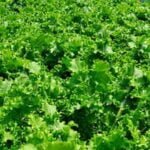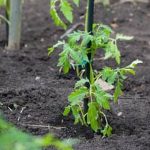Using mulch in vegetable gardens is a common practice among many gardeners. It helps to retain moisture, suppress weeds, and promote healthy plant growth. However, when it comes to choosing the right mulch for vegetable gardens, safety is a top priority. In this article, we will delve into the topic of using pine bark mulch in vegetable gardens and explore its safety considerations.
When it comes to selecting mulch for your vegetable garden, it is important to make an informed decision. Pine bark mulch is one option that many gardeners consider due to its availability and benefits. But before incorporating it into your gardening routine, understanding its composition and potential risks is crucial.
Pine bark mulch offers numerous benefits to both soil health and plants. It improves soil structure by promoting good drainage while retaining moisture, creating an ideal environment for vegetables. Additionally, it acts as a natural weed suppressant and insulation layer against extreme temperatures. However, concerns regarding the safety of pine bark mulch often arise due to misconceptions or the potential presence of chemicals.
In the following sections, we will explore the composition of pine bark mulch and its benefits for vegetable gardens. We will also address common concerns about its safety and debunk any myths associated with this type of mulch. Furthermore, we will discuss best practices for safely applying pine bark mulch in vegetable gardens to ensure optimal results.
By gaining a comprehensive understanding of the safety considerations surrounding pine bark mulch in vegetable gardens, you can confidently make decisions that balance excellence in gardening with your health and well-being.
Understanding Pine Bark Mulch
Pine bark mulch is a popular option for gardeners looking to enhance the health and productivity of their vegetable gardens. Understanding the composition and benefits of pine bark mulch can help gardeners make informed decisions about using it in their own gardens.
- Composition: Pine bark mulch is made from the outer layer of pine tree trunks, which is typically removed during timber production. The bark is shredded into small pieces and then used as a mulching material. It is important to note that pine bark mulch comes in different forms, such as nuggets, fines, or mini chips, with varying sizes and textures.
- Benefits: Pine bark mulch offers several benefits to vegetable gardens. Firstly, it acts as a natural insulator, regulating soil temperature by keeping it cool in hot weather and warm during colder periods. This can help protect delicate vegetable plants from extreme temperatures.
Secondly, pine bark mulch helps retain moisture in the soil by reducing evaporation. This can be especially beneficial in dry or arid areas where water conservation is crucial. Lastly, pine bark mulch slowly breaks down over time and contributes organic matter to the soil, improving its fertility and structure.
Gardeners have reported numerous positive results when using pine bark mulch in their vegetable gardens. The ability of this type of mulch to suppress weed growth has been praised by many gardeners as one of its significant advantages over other types of organic mulches. Additionally, the use of pine bark mulch can improve soil aeration by preventing compaction and promoting beneficial microbial activity.
Potential Risks
Addressing Concerns about Pine Bark Mulch
When considering pine bark mulch for your vegetable garden, it is important to address and dispel any concerns you may have about its safety. There are some common misconceptions surrounding the use of pine bark mulch, but it is important to rely on scientifically-backed information to make an informed decision.
Concern: Acidity and Nutrient Depletion
Some people worry that the acidity of pine bark mulch may negatively impact the pH balance of their soil or deplete essential nutrients from their plants. However, it is crucial to understand that pine bark mulch does have a slightly acidic pH, but this acidity will not lower the overall pH of your soil significantly.
In fact, as pine bark mulch decomposes over time, it becomes more neutral in pH. Additionally, pine bark mulch actually benefits your soil by improving drainage and aeration, which can enhance nutrient availability for your plants.
Concern: Allelopathic Effects
Another concern is that pine bark mulch may inhibit the growth of other plants due to allelopathy – a natural phenomenon where certain plants release chemicals that can suppress the growth of neighboring plants. While it is true that some tree barks possess allelopathic compounds, studies have shown that these compounds are typically found in higher concentrations in fresh or green wood material rather than aged or composted bark products like pine bark mulch.
Therefore, properly aged and composted pine bark mulch is unlikely to have significant allelopathic effects on your vegetable garden.
Concern: Pesticide Residues
Pine bark mulch obtained from sustainable sources should not contain pesticide residues that could harm your vegetable garden. However, if you are concerned about pesticide contamination, look for certified organic or tested mulch products. These options undergo rigorous testing to ensure they are free from harmful residues. Additionally, you can contact the manufacturer or supplier directly to inquire about their production and sourcing methods to further alleviate any concerns.
By addressing these common concerns, you can make an informed decision about using pine bark mulch in your vegetable garden. Remember to choose reputable sources and properly prepare and apply the mulch to maximize its benefits without compromising the safety of your plants.
Considering the Organic Factor
Pine bark mulch is not only an effective choice for vegetable gardens, but it also aligns with the growing preference for organic gardening practices. As more and more people prioritize the use of natural and eco-friendly products in their gardens, pine bark mulch stands out as a viable option.
One of the primary reasons why pine bark mulch is considered an organic option is its composition. The mulch is derived from the bark of pine trees, which naturally contains various beneficial organic compounds. These compounds can enrich the soil by promoting microbial activity and enhancing nutrient availability for plants.
Additionally, pine bark mulch does not contain any artificial additives or chemicals that could harm plants or contaminate the garden environment. Unlike some synthetic alternatives, pine bark mulch undergoes minimal processing, preserving its organic properties. This makes it a safe and eco-friendly choice for those practicing organic gardening methods.
When considering the benefits of using pine bark mulch in vegetable gardens, it’s important to note that it not only improves soil quality but also helps control weeds and conserve moisture. These advantages make it an ideal choice for creating a healthy and thriving environment for growing vegetables organically.
| Characteristic | Description |
|---|---|
| Organic Composition | Pine bark mulch is derived from natural sources without any chemical additives. |
| Promotes Soil Health | The organic compounds in pine bark mulch enhance microbial activity and nutrient availability in the soil. |
| Weed Control | Pine bark mulch acts as a natural weed barrier, reducing the need for chemical herbicides. |
| Moisture Conservation | The mulch helps retain soil moisture, reducing the frequency of watering and conserving water. |
With its organic properties and numerous benefits for vegetable gardens, pine bark mulch provides a safe and sustainable option for those looking to cultivate their produce through organic practices. By choosing pine bark mulch, gardeners can support the health of their plants while also contributing to a more environmentally friendly approach to gardening.
Evaluating Chemical Content
Pine bark mulch is a popular choice for many gardeners due to its numerous benefits, such as moisture retention and weed suppression. However, concerns regarding the chemical content of pine bark mulch have led some gardeners to question its safety for use in vegetable gardens. This section aims to address these concerns and provide insights on how to evaluate the chemical content of pine bark mulch.
When it comes to evaluating the safety of pine bark mulch, it is crucial to consider the source and production process of the mulch. Some pine barks can contain natural chemicals such as tannins or resins, which may be harmful to certain plants or pose risks for human health if present in large amounts. It is important to choose tested and certified products that comply with industry standards, ensuring that they are safe for use in vegetable gardening.
To assess the chemical content of pine bark mulch, it is recommended to look for products that have undergone testing by independent laboratories or third-party certification programs. These tests can determine the levels of chemicals present in the mulch and confirm its safety for use in vegetable gardens. Additionally, it is advisable to avoid using fresh pine bark mulch that has not been properly cured or aged, as it may contain higher concentrations of potentially harmful substances.
| Considerations | Guidelines |
|---|---|
| Source and production process | Choose tested and certified products |
| Freshness | Avoid using fresh, uncured mulch |
| Independent testing | Look for products tested by independent laboratories or certified by third-party programs |
By following these guidelines and selecting pine bark mulch that has been tested and certified, gardeners can ensure the safety of their vegetable gardens. It is essential to prioritize the health and well-being of both plants and humans when choosing any type of mulch for gardening purposes.
Toxin Contamination Concerns
Exploring the Potential for Toxin Contamination
When it comes to using pine bark mulch in vegetable gardens, one concern that may arise is the potential for toxin contamination. It is important to consider where and how the pine bark mulch is sourced and produced to determine if there are any risks associated with its use. While the possibility of contamination does exist, it is crucial to note that reputable mulch manufacturers follow industry standards and certifications to ensure the safety of their products.
Sourcing and Production Process
To analyze the possibility of contaminated pine bark mulch, it is essential to understand its sourcing and production process. The first step involves sourcing high-quality pine tree bark from sustainable forestry practices. Reputable manufacturers carefully select suppliers who follow responsible harvesting methods and avoid areas with potential contamination, such as industrial sites or polluted areas.
Once sourced, the bark undergoes a thorough processing procedure. This typically involves grinding or chipping the bark into smaller pieces before undergoing a composting or aging process. During this stage, any potential contaminants or toxins present in the raw materials can break down naturally over time.
Industry Standards and Certifications
To ensure the safety of pine bark mulch products, it is important for consumers to choose options that meet industry standards and certifications. Look for mulches that have been tested by independent laboratories for toxins such as heavy metals or pesticides. Certifications such as OMRI (Organic Materials Review Institute) provide reassurance that the product has met strict criteria for organic gardening practices.
Furthermore, check if the manufacturer follows quality control measures throughout their production process. Reputable companies often maintain comprehensive records of their sourcing procedures, manufacturing processes, and testing procedures. They also provide transparency through third-party certifications or labeling on their packaging.
By selecting pine bark mulch from trusted manufacturers who adhere to industry standards, you can minimize any potential risks of toxin contamination and confidently use it in your vegetable garden.
Remember, it is crucial to keep in mind that the overall safety of using pine bark mulch can heavily depend on the sourcing, production process, and adherence to industry certifications by the manufacturer.
Safe Application Tips
Preparing the Garden Bed
Before applying pine bark mulch to your vegetable garden, it’s important to properly prepare the garden bed. Start by clearing away any debris, such as weeds or rocks. This will create a clean and even surface for the mulch. Additionally, consider adding compost or other organic matter to improve the soil’s fertility and structure.
Quantity and Depth
When it comes to applying pine bark mulch in vegetable gardens, it’s crucial to use the right quantity and depth. Generally, a layer of mulch that is 2-4 inches deep is recommended. However, avoid piling it too close to the base of plants, as this can cause excessive moisture retention and potential rotting issues. Keep a gap around the stems of plants for proper air circulation.
Moreover, be mindful of using too much mulch in your vegetable garden. While mulch helps retain moisture, using an excessive amount can lead to waterlogging and hinder plant growth. Aim for a balance where moisture is retained but excess water can still drain effectively.
Integrating Mulch into Soil
To make sure the pine bark mulch integrates well with the soil and provides maximum benefits, it’s important to properly integrate it into the top layer of soil. You can do this by lightly raking or cultivating the top couple of inches of soil before spreading the mulch on top. This will help encourage nutrient exchange between the soil and mulch while preventing runoff during heavy rain.
Another technique for integrating mulch into the soil is “top-dressing.” This involves adding a thin layer of compost or other organic matter before applying the pine bark mulch on top. The added organic matter further enriches the soil and enhances its ability to support healthy plant growth.
By following these safe application tips, you can ensure that pine bark mulch is used effectively and without any potential issues in your vegetable garden. Properly preparing the garden bed, using the right quantity and depth of mulch, and integrating it into the soil will help you achieve optimal results while providing a safe environment for your vegetables to thrive.
Expert Opinions and Experiences
One of the best ways to understand the safety and effectiveness of using pine bark mulch in vegetable gardens is by hearing from experienced vegetable gardeners who have successfully used this mulch. These individuals have firsthand knowledge and insights about how pine bark mulch can benefit vegetable plants while ensuring their safety. By listening to their experiences, we can gain valuable information and make informed decisions when incorporating pine bark mulch into our own vegetable gardens.
Many experienced vegetable gardeners have found that using pine bark mulch has greatly improved the health and productivity of their plants. They report that the mulch helps retain moisture in the soil, which is essential for vegetables. It also acts as a natural weed suppressant, reducing the need for chemical weed control methods.
Additionally, pine bark mulch slowly breaks down over time, adding organic matter to the soil and improving its overall structure. This leads to healthier plant growth and higher yields.
Another benefit highlighted by experienced vegetable gardeners is that pine bark mulch acts as a natural pest deterrent. The strong scent of pine repels certain insects and pests, helping to protect vegetables from potential damage or infestations. Additionally, because pine bark mulch is slightly acidic, it can help lower soil pH levels if needed, which is beneficial for acid-loving plants such as tomatoes or blueberries.
It’s important to note that each gardener’s experience may vary based on their specific gardening conditions and practices. However, these positive testimonies from successful vegetable gardeners highlight the potential benefits of using pine bark mulch in your own garden. By taking into account their insights along with scientific research and industry standards, you can confidently explore using pine bark mulch as a safe and effective option for your vegetable garden.
Conclusion
In conclusion, while there may be concerns about the safety of using pine bark mulch in vegetable gardens, it can be a safe and beneficial option when certain considerations are taken into account. Throughout this article, we have explored the composition and benefits of pine bark mulch, as well as addressed potential risks and misconceptions.
It is important to note that pine bark mulch is an organic option, making it compatible with organic gardening practices. This is particularly relevant as there is an increasing preference for organic gardening methods, especially in vegetable gardens. Additionally, when choosing pine bark mulch, it is crucial to evaluate its chemical content and ensure that it has been tested and certified for safety.
Furthermore, concerns about toxin contamination in pine bark mulch can be alleviated by understanding industry standards and certifications that guarantee toxin-free options. By following safe application tips and guidelines, such as proper preparation, quantity management, and integration techniques, vegetable gardeners can achieve optimal results with the use of pine bark mulch.
In summary, when balanced with the appropriate precautions and considerations, pine bark mulch can be a safe and excellent choice for vegetable gardening. By choosing the right product and applying it correctly, gardeners can enjoy the benefits of improved soil quality, weed suppression, moisture retention, and disease prevention that pine bark mulch offers.
Frequently Asked Questions
What mulch to avoid in vegetable garden?
One mulch that should be avoided in a vegetable garden is rubber mulch. This type of mulch is made from recycled tires and can contain harmful chemicals such as lead, arsenic, and other toxins.
These chemicals have the potential to leach into the soil over time, posing a risk to both the vegetables and those consuming them. Additionally, rubber mulch does not break down easily and can also interfere with the natural decomposition process of organic matter in the soil.
Is pine bark mulch good for tomatoes?
Pine bark mulch can be beneficial for tomatoes when used appropriately. It has several advantages such as moisture retention, weed suppression, and temperature regulation. The fibrous nature of pine bark helps to conserve moisture in the soil by reducing evaporation, which can be especially advantageous for tomato plants that require consistent watering.
Pine bark mulch also acts as a natural barrier against weeds by blocking sunlight and inhibiting weed growth. Furthermore, it provides insulation to the roots of tomatoes, protecting them from extreme temperatures during hot or cold weather.
What is the best mulch for a vegetable garden?
The best mulch for a vegetable garden depends on various factors such as climate, soil type, availability, and personal preferences. However, organic mulches like straw or hay are often recommended for vegetable gardens due to their numerous benefits. Straw or hay helps regulate soil temperature by insulating plant roots and preventing extreme fluctuations in temperature that may stress or damage vegetables.
They also suppress weed growth by blocking sunlight and create a barrier between the ground and your vegetables—reducing contact with soil-borne diseases while preserving moisture in the soil. Organic mulches eventually break down over time, adding organic matter to enrich the soil structure and fertility for long-term benefits to your vegetable garden’s health.

If you’re looking to get into vegetable gardening, or are just looking for some tips on how to make your current garden better, then you’ve come to the right place! My name is Ethel and I have been gardening for years. In this blog, I’m going to share with you some of my best tips on how to create a successful vegetable garden.





